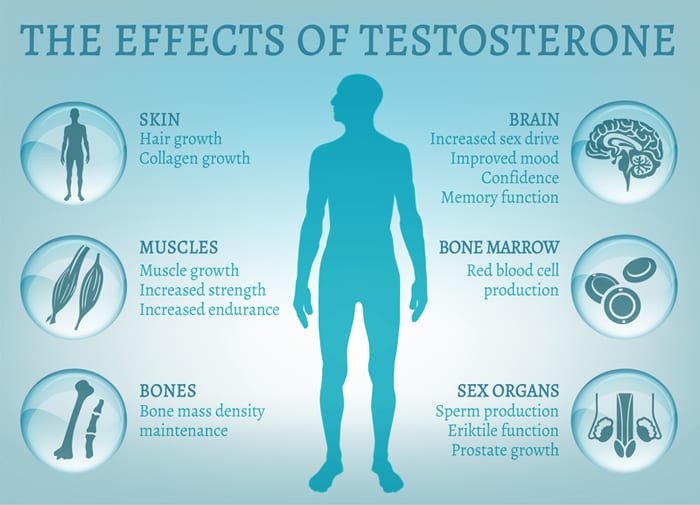Is low testosterone level creating intimacy issues between you and your partner or causing stress in your relationship? We will help you understand this problem and cope with it so that you get your relationship back on track.
Contents
What is Low Testosterone?
Low testosterone or male hypogonadism occurs when the body does not produce enough testosterone or sperm and in certain cases both. This condition can be a result of a defect from birth or due to a certain injury. Other reasons may be lifestyle choices, obesity, stress, medications, etc. The symptoms include low sex drive, fatigue, lethargy, and depression. For more information on this condition, you may read here. Before we jump into how low testosterone can affect your relationship, check this article to find out the causes and symptoms of it.

Source: University Health News
How does Low Testosterone Affect Relationships?
Low testosterone level has affected millions, to be approx — more than 5 million men of the United States. A study has revealed that one out of four men over 30 have low testosterone levels. This condition can directly affect the relationship with their spouse as it can create an intimacy issue.
How to Cope with Intimacy Issues?
Low testosterone symptoms are highly treatable, and the following will help you or your partner get through it.
Communicate:
Discussing the issue openly can help both you and your partner as you can individually share your feelings about this issue. This will not solve the condition altogether but open a path towards the treatment of this condition and get better.

Source: Health Journal
It is Not Your Fault:
If it is your partner who has low testosterone level which is leading to a lack of intimacy, do not blame yourself for that. His low sex drive is not because he finds you unattractive, but it is because of the condition he is dealing with. Do not lose your self-worth over a non-existing reason as this will put more pressure on your partner who already must be going through psychological pressure of being the reason for lack of intimacy.
Work It Out Together:
Both partners need to figure out the root cause of the issue. Working it out together can give both the partners the strength to accept the problem and get the needed medical help.

Source: Return Of Kings
Focus on the Non-Sexual Aspects:
Intimacy can be more than just sexual. Understand that, find things you like to do and the moments you like to share with your partner. Express your passion for your partner in other creative ways. This will help you get through the treatment phase of this condition.
Encourage Lifestyle Changes:
Getting professional help for treating low testosterone is great but other than that there are many small lifestyle changes that can help accelerate the treatment process. Other than mentally supporting your partner, you can also encourage him to bring small changes in his lifestyle like exercising every day, keeping a check on his weight, eating healthy, etc. You will find more information on how to increase testosterone levels from this source. When a man realizes that a lot of these symptoms are reversible with these small changes along with medication, then he may be encouraged to work towards it.

Source: SupplementYouNeed.com
Show Patience:
The treatment for low testosterone is effective in most of the cases, but it does not happen overnight. The treatment period may be long and frustrating. You need to be extremely patient as a couple to let this condition improve.
Get Medical Help:
Other than lifestyle changes, getting medical help is also necessary to effectively treat this condition. Every patient is different hence the treatment may vary from one man to another. Meet a professional and get the right treatment for your specific condition.
Sometimes, you may also need to take therapy sessions as a couple to handle this stressful time and not let it affect your relationship. If you think this condition is causing more stress between you and your partner than you can handle, then you must consider visiting a counsellor.
Coping with intimacy issue due to low testosterone levels can be challenging, but if it is handled delicately, then this can impose as no threat to the relationship as most of the cases, it is treatable, you just need to be patient and have faith on each other to work through it.
